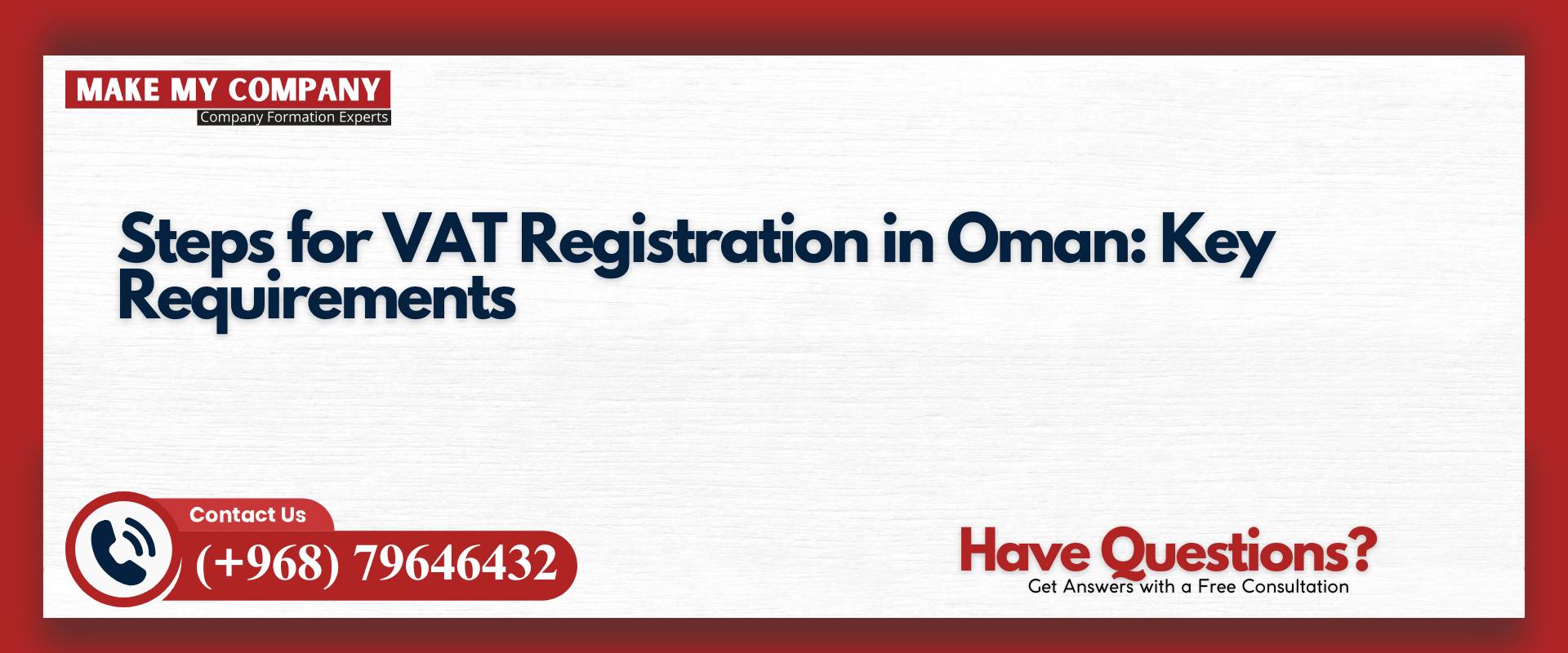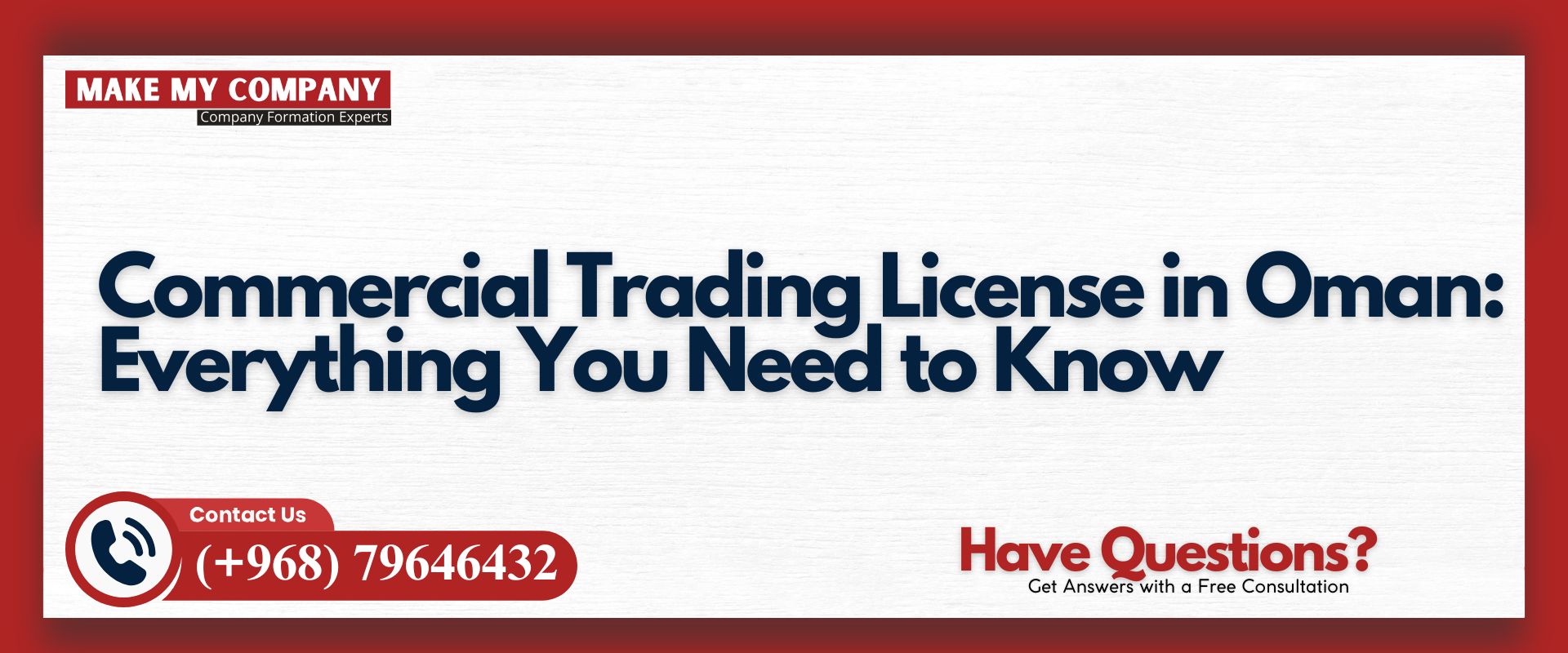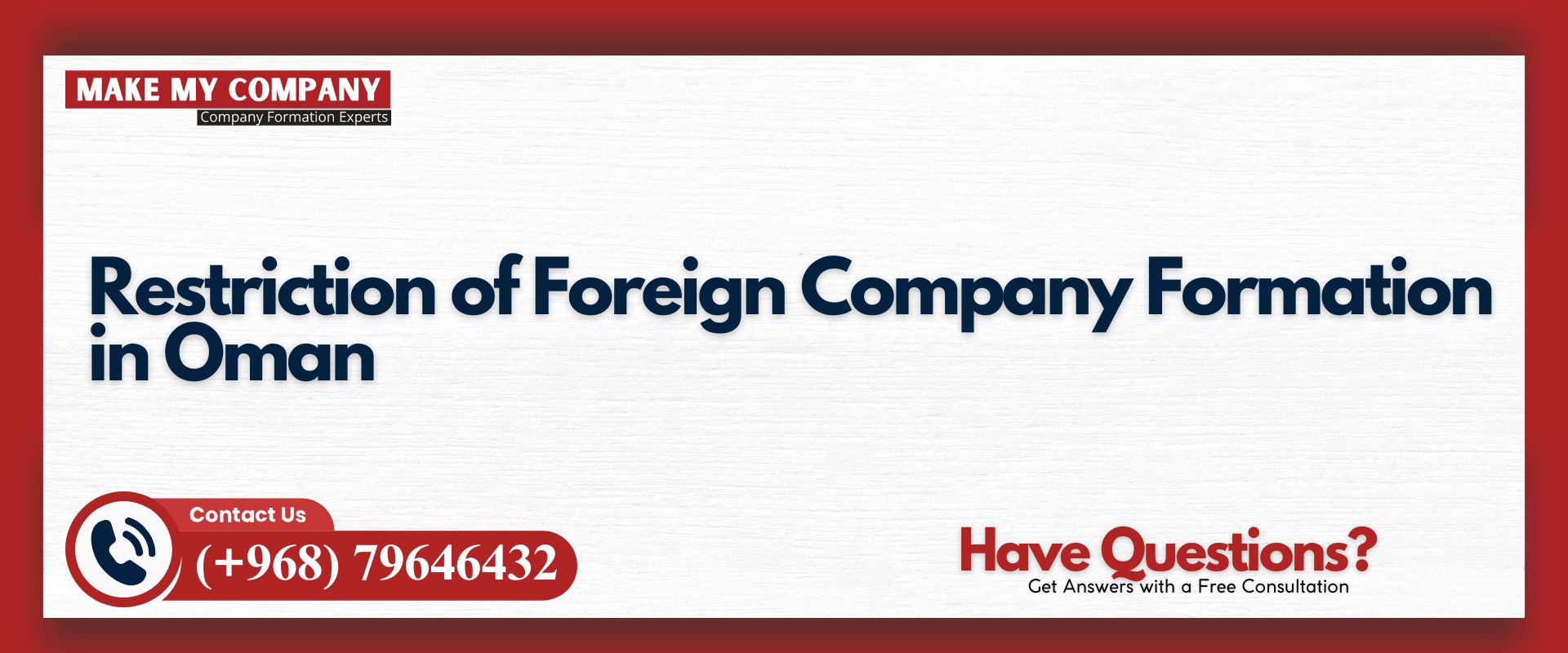Value Added Tax (VAT) was introduced in Oman on April 16, 2021, at a standard rate of 5%. As part of its strategic move to diversify the economy and increase non-oil revenue streams, the implementation of VAT became essential. The VAT system applies to most goods and services at each stage of the supply chain, ensuring that taxation occurs incrementally as value is added. The tax burden, however, is ultimately borne by the end consumer, while businesses act as intermediaries by collecting and remitting VAT to the government. For businesses operating in Oman, understanding the requirements and process of VAT registration in Oman is not just a legal obligation but also critical to maintaining smooth operations. Businesses that meet the specified turnover thresholds must ensure timely registration to avoid penalties or disruptions. Missing deadlines or failing to comply with VAT laws can lead to heavy fines, legal consequences, and potential reputational damage, all of which can severely impact a company’s finances and overall growth.
What is VAT and Why is it Important?
VAT (Value Added Tax) is an indirect tax applied to goods and services at each stage of production or distribution. While businesses collect VAT on behalf of the government, the tax burden is ultimately passed on to the end consumer. In Oman, the VAT framework is managed and enforced by the Oman Tax Authority (OTA). VAT plays a crucial role in generating revenue for the government, which helps fund public infrastructure, healthcare, education, and other essential services. For businesses, compliance with VAT laws ensures smooth operations and avoids unnecessary legal complications or penalties. Proper VAT compliance includes timely registration, accurate invoicing, the correct calculation of tax, filing returns, and payment of liabilities. Understanding these components is key to a successful VAT implementation.
Who Should Register for VAT in Oman?
Businesses operating in Oman must determine their eligibility for VAT registration in Oman based on specific turnover thresholds. Registration can either be mandatory or voluntary, depending on the business’s financial activity.
Mandatory VAT Registration
VAT registration is mandatory for businesses that:
- Have an annual turnover exceeding OMR 38,500 (approximately USD 100,000).
- Expect their turnover to exceed the mandatory threshold within the next 12 months.
- Engage in taxable activities such as sales, imports, or exports.
Failure to register when turnover exceeds the mandatory threshold can result in heavy fines and legal consequences.
Voluntary VAT Registration
Businesses with a smaller turnover can still opt for voluntary VAT registration if:
- Their annual turnover exceeds OMR 19,250 (approximately USD 50,000).
- They anticipate crossing this voluntary threshold in the upcoming 12 months.
Voluntary registration benefits businesses by allowing them to recover input VAT on expenses, improving cash flow and boosting credibility with customers and partners.
VAT Registration Requirements in Oman
Before starting the registration process, businesses must ensure they meet specific requirements. The Oman Tax Authority (OTA) requires businesses to fulfill the following criteria:
- Annual Turnover Threshold: Businesses must meet either the mandatory threshold of OMR 38,500 or the voluntary threshold of OMR 19,250.
- Engagement in Taxable Activities: Businesses must be involved in taxable supplies, imports, or exports.
- Commercial Registration (CR): A valid CR certificate proving the business’s legal establishment.
- Taxpayer Identification Number (TIN): Obtaining a TIN is mandatory for all tax-related activities.
- Financial Documentation: Turnover records or financial projections must be submitted to verify eligibility.
- Accurate Business Information: The business must provide clear and complete contact details, bank account information, and ownership documents.
Ensuring these requirements are met is essential to avoid delays or rejections during the VAT registration in Oman process.
Documents Required for VAT Registration in Oman
The Oman Tax Authority mandates businesses to submit various supporting documents to complete their VAT registration in Oman. Proper preparation of these documents ensures a smoother and faster approval process. The following documents are typically required:
- Commercial Registration Certificate (CR): This document confirms the legal registration and status of the business.
- Taxpayer Identification Number (TIN): A unique identification number issued by the tax authority.
- Financial Statements: Records showing the business’s annual turnover, taxable supplies, and related activities.
- Trade License: A copy of the trade license proving the business activity.
- Identification Documents: Valid identification (passport copies, IDs) of business owners, partners, or shareholders.
- Bank Account Details: Information regarding the business bank account used for VAT-related transactions.
- Supporting Turnover Proof: Documentation such as invoices, contracts, or purchase orders demonstrating taxable activities.
- Contact Details: Accurate business address, phone number, and email information.
Businesses should ensure all documents are accurate, up-to-date, and in the correct format as specified by the OTA. Incomplete or incorrect submissions can delay the registration process.
Step-by-Step Process for VAT Registration in Oman
The process of VAT registration in Oman involves several structured steps. Below is a detailed breakdown to help businesses navigate the process seamlessly:
Step 1: Determine VAT Registration Eligibility
Businesses must first determine whether they meet the registration thresholds for mandatory or voluntary VAT registration:
- Calculate the total value of taxable supplies, including goods sold, services provided, imports, and exports.
- Assess turnover for the past 12 months and projections for the upcoming 12 months.
- Decide whether your registration will be mandatory or voluntary.
Step 2: Gather the Required Documents
Before starting the registration, businesses should gather all necessary documents:
- Commercial Registration Certificate (CR)
- TIN details
- Financial statements or turnover reports
- Identification and ownership documents
- Bank account details
- Supporting documents for taxable activities
Step 3: Access the Oman Tax Authority Portal
- Log in to the Oman Tax Authority (OTA) portal.
- Create a new user account if you do not already have one.
- The portal serves as a central hub for VAT registration, filing returns, and managing VAT compliance tasks.
Step 4: Complete and Submit the VAT Registration Form
- Navigate to the VAT registration section within the OTA portal.
- Fill in all required information accurately:
- Business name and legal structure
- Commercial Registration details
- Annual turnover and financial information
- Contact details
- Upload the required documents in the specified format.
- Carefully review the entire application before submitting it to the OTA.
Step 5: Receive VAT Registration Certificate
Once the Oman Tax Authority reviews the application:
- Upon approval, businesses will receive a VAT registration certificate.
- The certificate will include a unique VAT Identification Number (VATIN).
- Businesses must display their VATIN on invoices, receipts, and all official documents.
Step 6: Implement VAT Compliance Procedures
Following registration, businesses must implement measures to ensure full VAT compliance:
- Issue VAT-Compliant Invoices: Include details such as the VAT rate, VATIN, invoice number, and total VAT amount.
- Maintain Detailed Records: Accurately record sales, purchases, expenses, and VAT transactions.
- File VAT Returns: Submit periodic VAT returns (typically quarterly) to the OTA.
- Pay VAT Liabilities: Pay any VAT amounts due before the deadlines to avoid penalties.
- Claim Input Tax Credits: Recover VAT paid on eligible business expenses to optimize cash flow.
VAT Penalties for Non-Compliance in Oman
Failure to comply with VAT laws in Oman can result in significant penalties. Businesses must be aware of the consequences of non-compliance, including:
- Failure to Register: Businesses that fail to register for VAT on time may face fines and penalties.
- Late Filing of VAT Returns: Late or missed returns result in monetary fines.
- Providing Incorrect Information: Submitting false or inaccurate VAT returns can result in legal consequences.
- Failure to Pay VAT: Non-payment of VAT liabilities within the stipulated time frame can lead to severe penalties.
By adhering to VAT regulations and deadlines, businesses can avoid these costly repercussions.
Benefits of VAT Registration in Oman
VAT registration offers numerous advantages to businesses in Oman, such as:
- Legal Compliance: Operating legally and avoiding fines or penalties.
- Input Tax Recovery: Businesses can recover VAT paid on business-related expenses.
- Credibility and Trust: VAT-registered businesses appear more credible to customers and partners.
- Competitive Advantage: Compliance enhances a business’s professional image in the market.
- Facilitation of Trade: VAT registration simplifies cross-border trade within the GCC region.
Conclusion
Completing VAT registration in Oman can seem daunting, especially for new businesses. To ensure an efficient and smooth registration process, businesses can seek support from a Business setup company in Oman.
A professional setup company can help with:
- VAT eligibility assessment
- Document preparation and submission
- Registration application filing
- Post-registration VAT compliance and reporting
By outsourcing these complex tasks to experienced professionals, businesses can focus on their operations while remaining fully VAT compliant. Compliance with VAT laws not only avoids penalties but also enhances the credibility and success of businesses in Oman. With the right guidance and resources, VAT registration in Oman becomes a simple and manageable process for businesses of all sizes.









